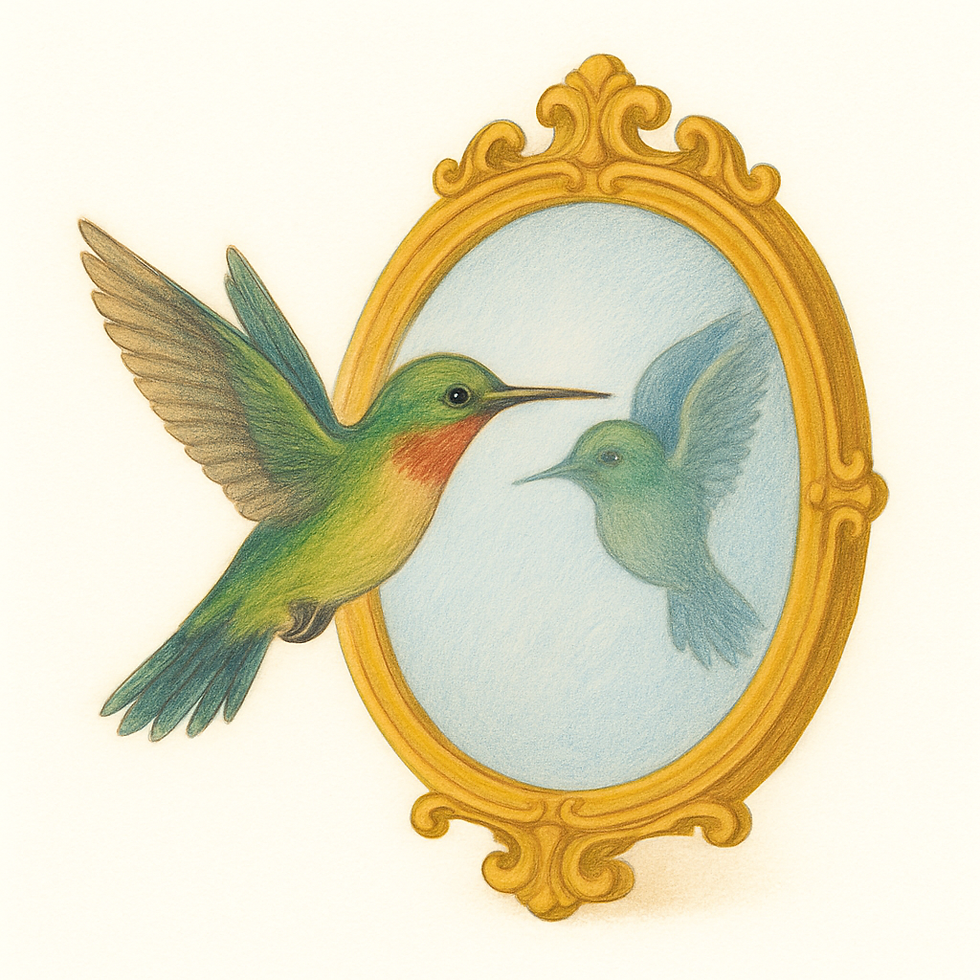When Mothering Yourself Matters Most
- danielle25247
- May 14
- 3 min read

The first time I heard the term “mother wound” it landed like a thud - something I’d felt but never had the words for, and I wasn’t sure why it resonated with me.
Bethany Webster coined the term and it gained notoriety when her viral blog post, “Why It’s Crucial for Women to Heal the Mother Wound” set the internet ablaze.
Sitting at a picnic table under string lights recently with childhood girlfriends, the subject of motherhood came up. How our kids are growing older and with that comes more complicated issues, heartache and worry. Here we were, the older versions of ourselves hoping we did a good job with our kids wondering, half kidding, what things we’ve done that will send them to therapy. Weren’t we just kids ourselves?
And then we spoke of our mothers and how we craved more of them, how we wished we could connect deeper with them, how their generation spoke less, sacrificed more, and asked for less from the world.
And that’s when I got it. This complexity - all of this - was what the term mother wound meant to me.
Being a mother and being mothered are both deep, aching relationships that can bring so much joy, sorrow, and everything in between.
Even if we all aren’t mothers, we all have a mother. We all needmothering.
In Greek mythology, Rhea was the mother of the Olympian gods Zeus, Hera, Poseidon, Hades, Demeter, and Hestia. (Talk about a rowdy house!) Motherhood then was celebrated as fertility (which can also mean creativity), wild nature, protection, and healing. Rituals of music and dancing were held in honor of mothers. Mothers were fiercely strong and revered as so.
It’s only fairly recently (in the grand scheme of time) that mothers began to be recognized and revered for how quiet they can be, how needless they can be, how small they can be (literally), and how self-sacrificing they can be.
I believe this is why Webster’s post went viral. When did we get so off-track with what motherhood really means?
If you’ve been a mother who has given birth, or if you have witnessed a mother giving birth, then you know there is nothing meek or quiet about it. It’s earth shaking when a world births another. It is raw, it is roaring, it is wild. It is all the things motherhood truly is. It is beautiful and painful and it takes us to the very core of our nature.
And then we get talked out of our nature.
We slink back into the fold of society, dampening our needs and desires. We hide our rage, our heartbreak, our deep capacity to care.
We give (and crave) recognition and validation while ignoring ourselves.
As I’ve pieced together my past and my deep fear of rejection, I learned recently that right after my mom gave birth to me she had major surgery and couldn’t take care of me. I stayed with a cousin (by marriage) for weeks. Learning this shifted something in me. That feeling of rejection was primal, but it wasn’t on purpose. It was healing to learn the truth.
The first time I gave birth I was sixteen years old and had to relinquish my firstborn through adoption. The wound of rejection was passed onto another generation, but this time more severe, more permanent. Is this what secrets do? Do they perpetuate the pain?
The primal scream that raged in my heart and in my head to keep my baby went unheard. I needed to erase the shame of what I’d done, so I buried it beneath my skin. I kept the secret to myself.
But here’s the thing: the story doesn’t end with what we lost. It doesn’t end with what our mothers couldn’t give, or what we couldn’t keep.
We get to mother ourselves now.
We get to listen to the parts of us that were silenced. To validate the ache, the rage, the tenderness. We get to nourish the girl inside who was taught to be quiet and small. We get to hold her close and say, you are not too much. You never were.
Mothering yourself isn’t a consolation prize - it’s a reclamation. It’s the most intimate form of healing.
And maybe when we learn to mother ourselves, we might just mother the world a little better too.
If this stirred something in you, take a quiet moment and ask:
What part(s) of me needs mothering?
Then try giving that part what she needs - comfort, boundaries, softness, rest, protection. Even five minutes of care counts.
Because you are worthy of the love you so freely give.
Happy Mother’s Day - to every kind of mother, especially the one inside you.




Comments